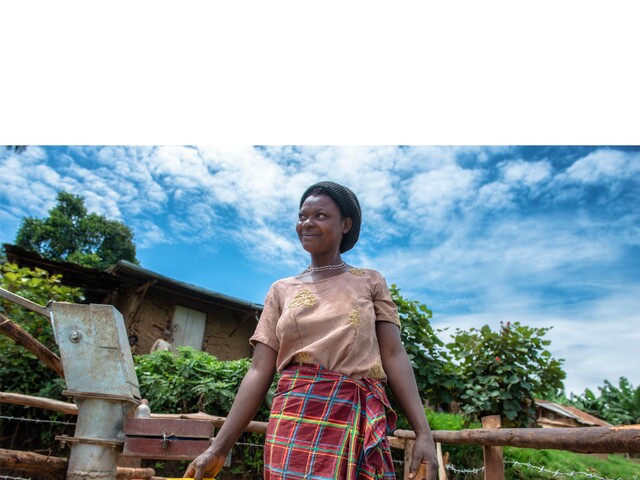
Explore our pages
Narrow down your search by using the filters. Dive deeper using advanced search.
Please find below your results. You can filter results or use our Resources: Advanced Search facility.
Achieving SDG6 needs continued dedication but sometimes appreciation of hard work is welcome. Read more...
Passing on the baton. IRC takes the legacy of Ton Schouten forward. Read more...
IRC has compiled a growing repository of tools and guidance for strengthening WASH service delivery. Read more...
IRC has since 2011, supported Hand Pump Mechanics Associations to develop into viable business entities. To enable the HPMAs understand, visualize and communicate their business plans, IRC Uganda introduced the business canvas - a tool used for developing, documenting and visualizing business... Read more...
Intern Jimmy Otim realised his passion for WASH in Uganda's Lira District. Read more...
Read IRC's literature review on approaches to driving whole system change in the effort to achieve sustainable water services for everyone. Read more...
This briefing note highlights the key issues surrounding Operation & Maintenance of water supply facilities, based on experiences from four districts in Uganda. Read more...
Financing for the water and environment sector in Uganda has shown a declining trend since 2008, leading to a reduction in funding for key aspects of water supply services. Read more...
In 2014, IRC/Triple-S undertook a water service monitoring survey in Kabarole district to establish the level of water service received by users. The survey was done within the framework of the new Service Delivery Indicators, which were proposed by the Triple-S Initiative to complement the... Read more...
To contribute towards the enhancement of monitoring rural water service delivery in Uganda, IRC/Triple-S undertook to develop a set of Service Delivery Indicators (SDIs). The proposed SDIs complement the national golden indicators, which provide information on general aspects of rural water... Read more...
In 2011 the Ministry of Water and Environment in Uganda adopted a strategy of establishing district based Hand Pump Mechanics Associations (HPMAs) to strengthen Operation and Maintenance of rural water systems and increase functionality of rural water sources. IRC Uganda has been working closely... Read more...
The Uganda Water and Sanitation NGO Network (UWASNET) honours IRC Uganda's Country Director. Read more...
This experiment reviewed current monitoring indicators and developed and tested a new monitoring framework designed to be implemented by rural water stakeholders so that they can identify and address problems as they arise at the district level. Read more...
This experiment examined the two main service delivery models for community managed water services in Uganda, established baseline service levels, examined success, failure and promising innovations. Read more...
This experiment consisted of a study to assess the significance, efficacy and sustainability of the learning alliance approach in influencing learning and adaptive capacity in the rural water sector in Ghana. Read more...
IRC/Triple-S Uganda has worked with the Ministry of Water and Environment to develop a learning and coordination model aimed at improving continuous joint learning throughout the rural water sector to promote innovations and address underlying challenges of service delivery. Read more...
IRC is using Qualitative Document Analysis (QDA) as a tool to measure change in the WASH sector. Read more...
To provide ongoing services, local governments need to systematically address the full range of costs, beyond construction of water facilities. This experiment supported districts to apply the life-cycle costs approach and asset management, so that their water and sanitation plans and budgets would... Read more...
One of the key challenges facing the water and sanitation sector is the lack of coordination among stakeholders. This experiment identified and sought to address drivers and barriers towards a coordinated sector-wide approach for sustainable water services in Ghana. Read more...
One out of three rural water supply systems in developing countries doesn’t function at all or performs far below its promised level. How do you go from broken pumps and failing systems to reliable and lasting water services? Read more...